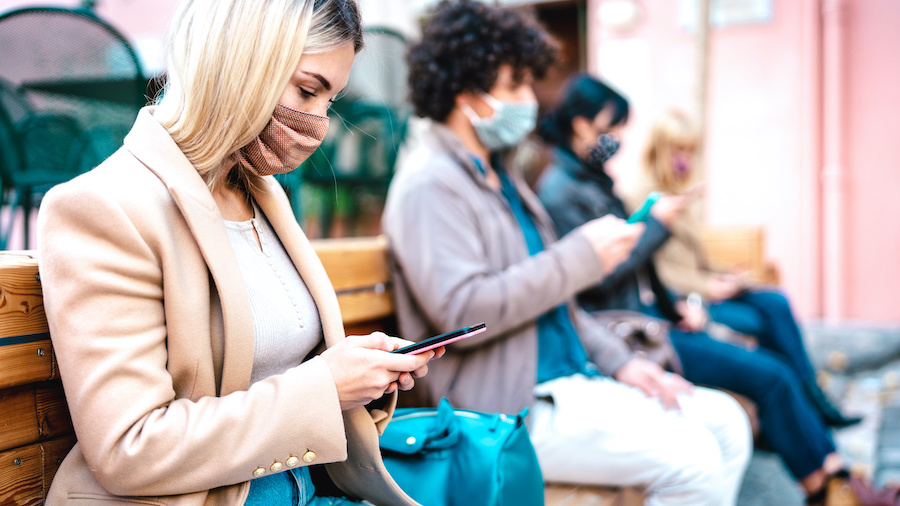The Effect of Fake News on People’s Behavior; The Post-Pandemic Reality for Hotels
By Greg Beaubien
August 2021
Study: Fake News Has Negligible Effect on People’s Behavior
After fake news stories spread on social media during the early stages of the pandemic, researchers in Ireland investigated what effect such disinformation might have on people’s behavior.
As NiemanLab reports, more than 4,500 participants in the May 2020 online study were each shown four true news stories about the pandemic and two fake news stories. The participants then indicated how likely they would be to act on that information over the next several months. The fake stories did not significantly affect the participants’ intentions regarding their future behavior, researchers found.
After reading fake news stories, some participants developed false memories that might affect their future decisions, the researchers said. Instances of false memories were small, but could produce big changes.
In 46-Country Survey, U.S. Trust in News Media Ranks Lowest
In a survey of 92,000 news consumers in 46 countries, the United States ranks last in the trust its citizens have for the news media. Just 29 percent of U.S. respondents said they trust the news, a lower proportion than in any other country surveyed, according to “Digital News Report 2021” from the Reuters Institute for the Study of Journalism at the University of Oxford.
Seventy-five percent of U.S. respondents who identify themselves as conservative think media coverage of their views is unfair, Poynter.org reports. More broadly, “Many Americans do not feel that news organizations are covering people like them fairly,” said Rasmus Kleis Nielsen, director of the Reuters Institute and one of the report’s authors. “And those who say the news media are treating them less fairly are less likely to trust the news,” he said.
Local news, both print and broadcast, is more trusted than national news sources, Poynter reported. Fifty-two percent of respondents said they prefer local broadcast news to newspapers. Among readers of local newspapers, 33 percent were interested in political coverage and 16 percent were interested in education coverage.
Only 20 percent said they go directly to a site or app to get news online. Said Nielsen, “It’s hard to see how news media can win people’s trust if they often have only a few, fleeting points of contact with them, frequently mediated by social media,” which “people generally do not associate with trustworthy news.”
For Hotels, Room-Service Robots Part of Post-Pandemic Reality
With the coronavirus receding and people starting to travel again, many are finding that human contact between hotel guests and staff has been nearly eliminated.
As Vox reports, contactless check-ins, vending-machine meals, chatbot concierges and automated cleaning are becoming the “new normal” for hotels. At most major hotels, guests can now forgo the front desk and use their phones as room keys.
Guests today “want to get up to their room as fast as possible and not stop by the front desk,” says Ian Schrager, founder of New York City’s luxury Public Hotel.
Some hotel rooms now feature antimicrobial surfaces, auto-cleaning metals in bathrooms and voice-activated controls. At the Sonesta San Jose, guests who order room service might open the door and see a three-foot-tall delivery robot wearing a bow-tie sticker.
Travelers could reject impersonal hotel experiences, however. Dan Flannery, managing director at Edition Hotels, said, “A luxury hotel still relies on genuine human interactions to make guests feel good.”
More Airlines Jettison In-Flight Magazines
After 55 years, American Airlines will stop publishing its in-flight magazine, American Way, the company announced in June.
As The Wall Street Journal reported, American is the latest carrier to discard the publications that passengers once found in seat pockets in front of them, as people increasingly turn to digital content instead.
Delta and Southwest discontinued their in-flight magazines last year, citing hygiene concerns during the pandemic. Neither plans to bring its magazine back. In February, Japan’s All Nippon Airways said it would replace its Tsubasa Global Wings publication with a digital version. Scoot Tigerair, a budget carrier from Singapore, did the same with its magazine in November.
Some airlines remain committed to their in-flight magazines. United brought Hemispheres back to its airplanes this summer, after mailing the publication to loyalty-program members during the pandemic. Virgin Atlantic says it will revive its magazine Vera in August.
Gary Leff, an air-travel blogger, said many passengers enjoy in-flight magazines for “the serendipity of discovering something you wouldn’t have otherwise.”



